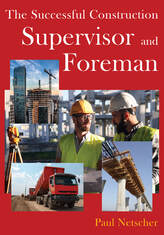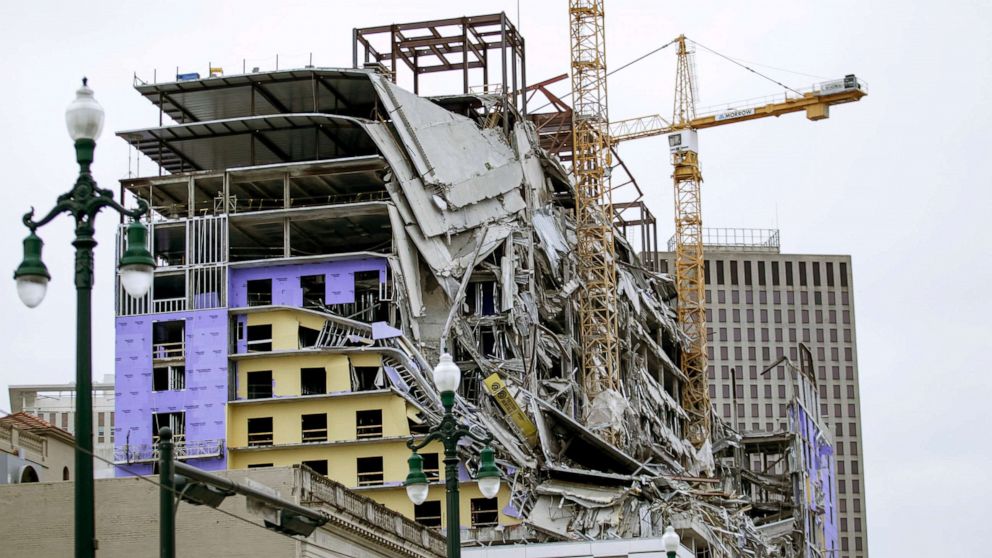Construction is desperate for skilled peopleThe construction industry is desperate for skilled and experienced people, so it’s important to train people. A skilled workforce can work faster, more safely and produce better quality. Having skilled workers makes the job of construction managers, supervisors and foremen much easier. A skilled construction worker requires less supervision. They often know what to do and how to do it, and they don’t need all the intricate details of the task explained to them. Everyone wants to develop, grow, learn new skills, be promoted and take on new responsibilities. Why isn't the construction industry training people? Image courtesy of Stuart Miles at FreeDigitalPhotos.net Image courtesy of Stuart Miles at FreeDigitalPhotos.net Regrettably many managers don’t train their people. I hear all kinds of excuses, the most common is that there isn’t time and we can’t spare the person for a few days or weeks to attend a training course. Other excuses include, training is expensive, once the person is trained they’ll want a pay increase, or they’ll leave the company when they’re better qualified. Sure, training does take time and cost money, and sometimes employees will ask for a pay increase when they’re qualified, and some may even leave the company for a better job. But, the benefits of training far outweigh these excuses. Indeed, a trained and skilled construction worker is a valuable asset to construction companies. A skilled construction worker is safer, more productive and produces better quality than a less skilled worker – so yes, maybe the person will deserve a pay increase when they’re successfully qualified and proved their skills have improved. But, the benefits go further than this. Employees that are sent on training courses often become more motivated because they sense that the company sees a future in them and is prepared to invest in them. Certainly, some newly trained individuals will leave the company, but many will become more loyal, since they’ll appreciate the company investing in them and their future. Other workers will see that the contractor is sending employees on training courses and they’ll become more motivated, working harder so that they can be selected to attend training. Indeed, I’ve had huge success by training my people and I’ve been handsomely rewarded with their improved skills, loyalty and diligence. Sometimes contractors only look at the short term. They don’t plan for the next construction project, for next year and the years after that. They’ll say it’s pointless training someone because there might not be a next project. But guess what, there usually is a next job, then there’ll be the same excuse again, and guess what, there’ll be another construction project! So why battle from one construction project to the next with poorly skilled workers. But, having good skilled workers will probably help the contractor get further projects. Skilled workers enhance a contractor’s reputation, and improved productivity from skilled workers will ultimately reduce the company’s costs, resulting in the contractor submitting more competitive prices and winning more construction work. Getting construction training rightOf course training must be done for the right reasons. It must be training in a skill which the person doesn’t have and also a skill that the contractor can use on the construction project, and hopefully on following projects. Effective training is dependent on a number of factors. Firstly, the person must want to be trained in that skill. Training a reluctant trainee is usually a waste of money. Management must be committed to send the person on the training course. Importantly, the construction supervisor (foreman or superintendent) must be prepared to utilise the person’s newly acquired skill, which includes mentoring and coaching the person further. Regrettably, many training programs only provide the theory and basic training, but this is of little use without further practical on the job training and an opportunity to practice the newly learned skills. Unfortunately, not all training courses and providers are what they should be. There are many poor training providers and these are costly, since there’s the cost of the course, plus the cost of the person’s time attending the training course, and often the qualification obtained is worthless, or worse the person has learned bad habits. Always check that the course curriculum will provide the desired end result. Some providers are prepared to modify their training courses to include things that you think would be more suitable to your employees. When the trainee returns to work quiz them to find out what they thought of the course and the provider. Poor feedback means you should avoid sending others on the course. Different forms of construction training Image courtesy of Serge Bertasius Photography at FreeDigitalPhotos.net Image courtesy of Serge Bertasius Photography at FreeDigitalPhotos.net Construction training doesn’t always have to be courses held away from the project. Some providers are willing to provide training on the construction project, providing the project can supply sufficient people for the course. This is useful since part of the practical training outcomes is usually contributing to the project’s progress. Training is not only about technical skills. Teaching the soft skills is often just as important, whether it's sound management practices, communication, delegation, conflict resolution, etc. Then there's financial principles, contractual issues and productivity. But even a good understanding of the company's procedures is essential. Another valuable form of training is onsite mentoring. Now I know that construction managers, supervisors and foremen are always hectically busy and don’t have time for another task. But, every time you find a fault, show the person the right way to do the task. Sure, it takes a little more time, but hopefully the person won’t repeat the mistake. Most people in construction are poor delegators. The common excuse is that no one is capable of doing the task. But they never bother to show anyone how to do the task. Showing someone in the team once will allow you to be able to delegate the task next time to that person. After all, most of us were taught by someone else. Of course leading by example is an essential part of mentoring. So if you’re diligent, hardworking, safety conscious and take pride in good quality work, your team should follow your example. However, if you criticise company management, don’t follow the company or project rules, accept poor safety and bad quality, and skip out of the project during working hours, then you can expect your team to follow your poor example. Construction training will pay dividends Image courtesy of Stuart Miles at FreeDigitalPhotos.net Image courtesy of Stuart Miles at FreeDigitalPhotos.net Good and effective training will pay dividends. It will result in better motivated workers who will accomplish tasks quicker, more safely and with better quality. It will result in the need for fewer workers and less supervision and management. It will result in better productivity, fewer mistakes and less rework. It will mean happier clients and the possibility of future projects. Don't look for an excuse why you're can't train people, rather see the long-term benefits which will more than outweigh the short-term inconvenience and costs of training. The construction industry is desperate for skilled construction workers, supervisors, foremen and construction managers. Your construction projects and construction company is desperate for skilled people. You can make a difference by training your crew. Please like and share this article. Have you had success training your team? Do you want to learn how to manage construction projects and construction companies successfully? Click on picture to view this book on Amazon Click on picture to view this book on Amazon This article is an extract from my book 'The Successful Construction Supervisor and Foreman' which is packed with construction project management tips and advice. I've written several easy to read construction management books for owners, contractors, construction managers, construction supervisors and foremen. They cover all aspects of construction management and are filled with tips and insights. The books are available in paper and ebook from most online stores including Amazon. Need help with your construction project or construction company?Contact me for help and advice.
To read more about the author’s books and find out where you can purchase them visit the pages on this website by clicking the links below:
To read more about the author visit the page 'Paul Netscher' Want to contact Paul Netscher please enter your details on 'Contacts' Find out how Paul Netscher can help you © 2019 This article is not to be reproduced for commercial purposes without written permission from the author. As an Amazon Associate I earn from qualifying purchases
9 Comments
Partially completed multi-floor building collapses with at least 1 death. Read More
Are you a construction contractor waiting for money? Late payments are every contractor’s nightmare. Late payments disrupt cash-flow and result in the contractor being unable to pay their suppliers, subcontractors and even employees. This could result in the loss of payment discounts (so items cost more) and stricter payment terms with suppliers in the future, which could mean that suppliers require earlier payment or even payment in advance, which negatively impacts the contractor’s cash-flow further. Of course non-payment of suppliers, subcontractors and employees often disrupts work on construction projects resulting in delays, and it creates mistrust between the parties impacted. Nobody wants to have to wait for their money. What contractors must do to ensure they are paid on time It’s therefore essential that contractors ensure they are paid on time. This can be achieved by implementing the following:
It's critical contractors are paid on time  Late payments and non-payment is probably the biggest cause of construction contractors going bankrupt. Being paid on time is critical to every business. It’s critical to claim all completed work in accordance with the construction contract and submit invoices on time. Ensure that payments are received and follow up late payments immediately. Regrettably many construction contractors don’t get the basics of invoicing and getting paid right. No company can afford to work for free. How do you ensure that you are paid on time? Do late payments impact your business? Please comment, like and share this post if you found it useful. Want to learn how to manage construction projects and construction companies successfully?I've written several easy to read books for owners, contractors, construction managers, construction supervisors and foremen. They cover all aspects of construction management and are filled with tips and insights. The books are available in paper and ebook from most online stores including Amazon. Need help with your construction project or construction company?Contact me for help and advice.
To read more about the author’s books and find out where you can purchase them visit the pages on this website by clicking the links below:
To read more about the author visit the page 'Paul Netscher' Want to contact Paul Netscher please enter your details on 'Contacts' Find out how Paul Netscher can help you As an Amazon Associate I earn from qualifying purchases  Image courtesy of Naypong at FreeDigitalPhotos.net Image courtesy of Naypong at FreeDigitalPhotos.net A few months back my wife was away for a couple of weeks visiting her mother. I had a few maintenance items to sort out around the house and needed tools and various items from the tool cupboard in the garage. Unfortunately, my wife had left her car parked too close to the cupboard so I couldn’t open the cupboard doors properly. It wasn’t easy getting to the tools and other items I needed in the cupboard, so I had to be careful that the cupboard doors didn’t bash her car and scratch it. Since I had a few things to fix I was in and out the cupboard several times over a couple of days. Now, of course, the easy thing would have been to re park the car further from the cupboard. This would have made access to the cupboard easier and there was less chance of damaging the car. Indeed, the couple of minutes it would have taken to re park the car would have been less time than I lost working around the awkward access to get the tools I needed. You might laugh at my stupidity, but I’m sure that everyone has had a similar situation. We’ve all put off fixing the light that’s not working or repairing the door handle that’s falling off, or fixing a sticking door or jamming window – even when these repair jobs would probably only take a few minutes, maybe ten minutes at max. Instead, we live with the problem for days, weeks and even months. Where the problem is irritating us daily, possibly costing us a minute every time we have to fumble in the darkness or wrestle with the sticky door, where we have to slam the door to get it closed, which eventually starts cracking the door frame and damaging the paintwork. Often the cost of the repair and the time to fix the damage caused by not fixing the item straight away becomes far larger – making it even less likely that we’re going to fix it soon! What are we waiting for, all the lights to blow and the house to fall down? Are there obstructions on your construction project?Of course, it’s the same on many of our construction projects. Construction material is stacked in walkways and rubbish is allowed to accumulate where people work. Everyone has to step around and over the mess. There could be several workers walking the route every day and they all lose a few seconds, even a minute, working around the problem. Then there’s the safety risk, somebody could trip and fall. There’s also a chance that the stacked construction material could topple or fall over and be damaged. Yet, it’s too much trouble to tidy the area. But the ten to twenty minutes that it would take one worker to tidy the walkway and work area is far less time than is lost over a week by all the people having to negotiate the obstacles. If you look around on your construction projects this analogy is repeated several times over. Indeed many could start with their desk, office, and filing systems. A good sort out and tidy up might take a Saturday morning, but it will save you countless lost minutes every day searching for misplaced documents and missing papers. But, there’s more than just the time lost, there’s also the risk that an important item will be missed or overlooked in the chaos. Then if you look at our project stores and construction material storage areas I wonder what you will encounter? Are they tidy and well planned, where construction tools and materials aren’t being damaged and can easily be found? Or, are things just dumped in an untidy heap? Is anybody interested in tidying things? But, it doesn’t stop there! How are the crews working? Do they have the right construction equipment, or are they making do with equipment that’s not quite right for the job? Maybe battling with tools which are blunt or under-powered? How much time and money is that costing? There’s also the risk that the equipment is damaged, or worse, that there’s an accident. Isn’t it better to rather have the right piece of equipment, and sharpen blunt items or replace them with new sharper blades? It might take a few minutes to organise and cost extra money, but, this will almost certainly be less than the time and money saved by using the right item. Unfortunately, it seems to be human nature to work around a problem, rather than fixing it correctly. Often when we do try and fix it we do half a job, a patch job, just to get things moving again. We always make the excuse that we’re too busy and don’t have the time. Is it just because we are lazy? Maybe it’s because we like to tell ourselves that we’re busy? Yet, common-sense (which doesn’t always seem to be that common) should tell us that living with the problem and inconvenience costs far more time and money than fixing the problem would. That, anyway, fixing the problem often doesn’t take that long. But, furthermore fixing the issue now, will remove an inconvenience, it will improve safety and it will often prevent an item being further damaged. Undoubtedly it will improve productivity! Improving your construction project?Get out onto your projects and see what the irritations are. Where are the stumbling blocks? How can productivity be improved? ....Continue Reading.... This article was first published on the ClockShark website. To visit this website and continue reading the article click on the link above. Please share this post Do you want to learn how to manage construction projects successfully? I've written several easy to read books for owners, contractors, construction managers, construction supervisors and foremen. They cover all aspects of construction management and are filled with tips and insights.
The books are available in paper and ebook from most online stores including Amazon. Need help with your construction project or construction company? Contact me for help and advice. To read more about the author’s books and find out where you can purchase them visit the pages on this website by clicking the links below:
To read more about the author visit the page 'Paul Netscher' Want to contact Paul Netscher please enter your details on 'Contacts' Find out how Paul Netscher can help you |
Archives
June 2024
Note: We welcome genuine comments, especially comments that add additional information to the subject matter in the article. We however reserve the right to remove inappropriate comments, which includes comments that have nothing to do with the subject, comments that include inappropriate language, and comments that are an advertisement for a product or company, or which include an advertising link. Comments must be in English. We will not enter into discussion on why a particular comment was removed.
CategoriesCopyright 2016 - The attached articles cannot be reproduced for commercial purposes without the consent of the author.
The opinions expressed in the attached articles are those of the writer. It should be noted that projects are varied and different laws and restrictions apply which depend on the location of the contractor and the project. It's important that the reader uses the supplied information taking cognisance of their particular circumstances. The writer assumes no responsibility or liability for any loss of any kind arising from the reader using the information or advice contained herein. "I have what I consider some of the best books on construction management."
Books are available from: Amazon.com Amazon.co.uk takealot.com kalahari.com Amazon.in Amazon.de Amazon.fr Amazon.it Amazon.com.au Powell's Fishpond uread bokus Amazon.ca Amazon.es Other retail stores Available in paperback or on Kindle "28 YEARS OF CONSTRUCTION PROJECT MANAGEMENT EXPERIENCE, DEVELOPING SUCCESSFUL CONSTRUCTION PROJECT MANAGERS AND BUILDING SUCCESSFUL CONSTRUCTION COMPANIES"
|










 RSS Feed
RSS Feed




